I can only imagine the backslapping and high fives that went around in the AEG offices when someone jotted “fantahzee” on the whiteboard during a product development meeting. The name is a classic – a pun that elicits chuckles from dads of small children (myself included) and groans from anyone under the age of 30.
To which I say, genius! Everything you need to know about Fantahzee is in the name and as you’ll soon see, that particularly combination of dice sequencing, hand management, and high fantasy questing works in a strange, exciting way that I didn’t expect but fully welcome.
What Exactly is “Fantahzee”?
If you haven’t guessed yet, Fantahzee is a fantasy spin on Yahtzee. The box comes with a big deck of monsters, heroes, and a huge pile of dice. The whole thing screams “desperate attempt to capitalize on a popular family game in hobby trappings” – trying to recapture the lightning in a bottle that is King of Tokyo.
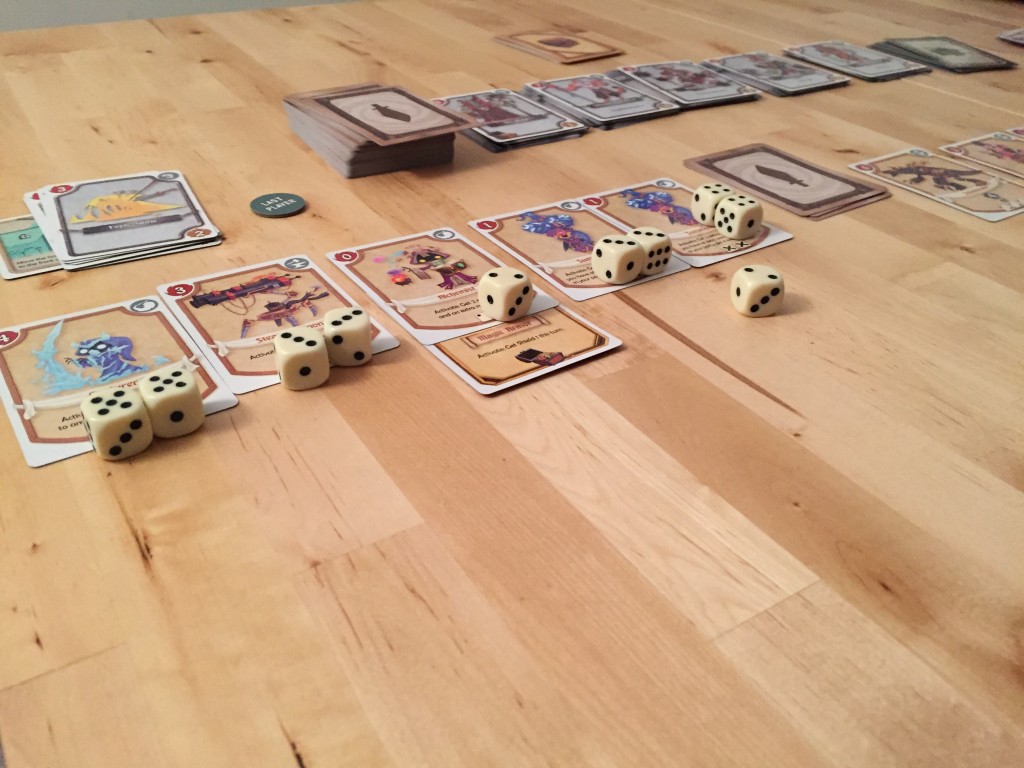
So you would be forgiven for writing Fantahzee off at first glance. I certainly did at Gen Con, not getting a chance to try it there and very much on the fence about bringing it home for a play through. But mechanically speaking, this is actually a very sound, and accessible title.
The goal of the game is to take a party of heroes into a town and clear it of monsters and villains – very much your classic “fantasy heroes on a quest” trope. There’s a bit of backstory here, but the creatures are all well-trodden fantasy fare, and the heroes along the same lines. At the beginning of the game, you’ll populate five different stacks of enemy cards with 1 boss card, 5 level-two monsters, and 6 level-one monsters. These decks are laid out in a row with a town deck at the end and a hero deck at the other end.
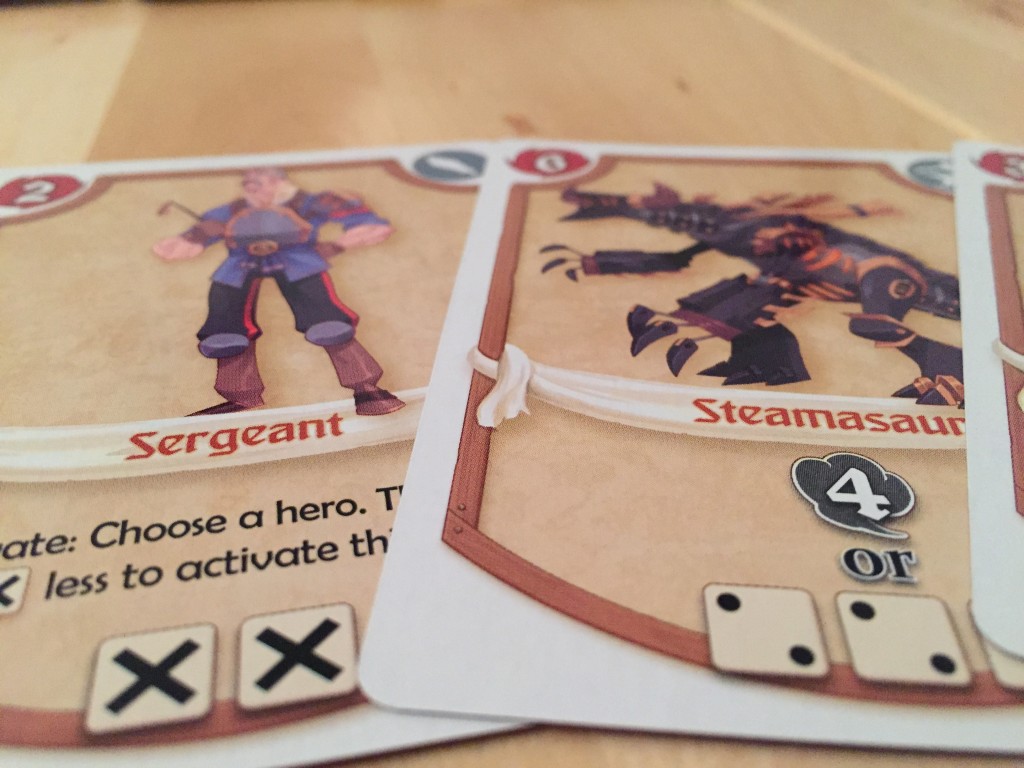
You’ll start with six hero and action cards in your hand. Each turn you can place two heroes in your tableau and play two actions, in any order you choose. The heroes have a damage value (this is both their damage and hit points) and a dice requirement. You then roll your five dice and allocate them to the heroes. A certain combination of dice with certain values will activate each. The simplest heroes only require one die, while the most powerful require upwards of five.
There are other benefits of activation. Not only do active heroes gain access to their strength for attack, they can buff other heroes, reduce the cost of future activations, or even provide Steam, a second currency that activates mechanical heroes.
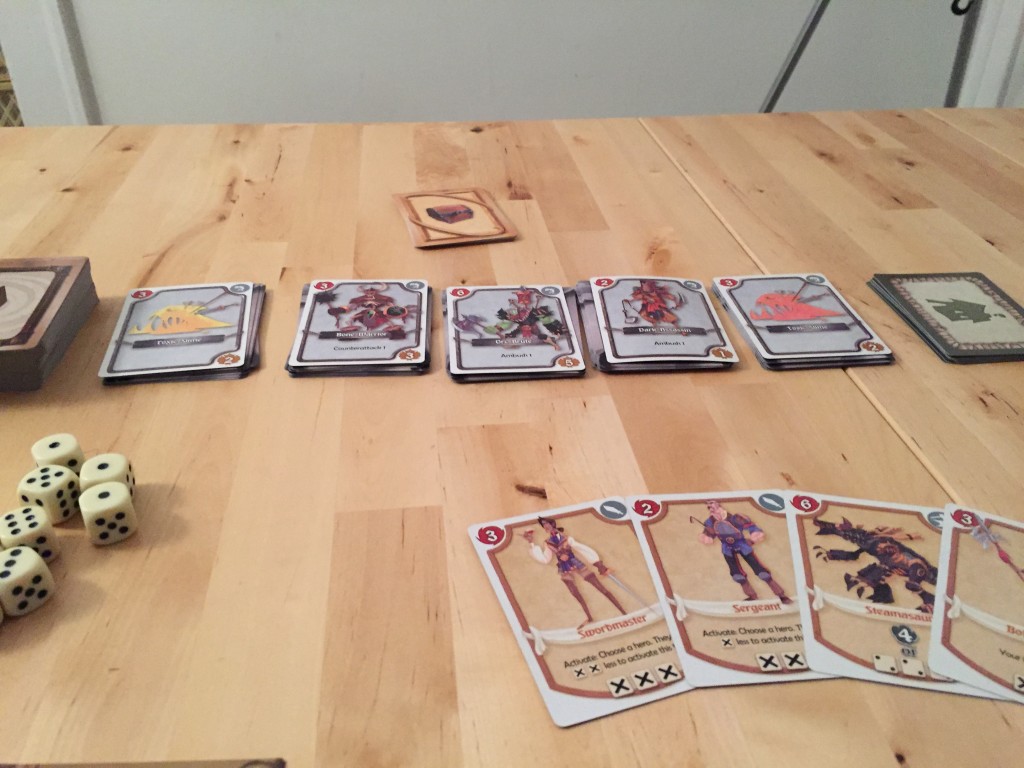
Finally, you face off against monsters, choosing whichever you want to fight and pushing your luck until you are ready to stop or attack one just a bit too strong. If you don’t kill the monster in the far right deck, they will attack the town deck (and you lose points), and if you don’t kill off those with Ambush ratings, you will take more damage. All very simple and easy to both teach and learn.
What We Like About Fantahzee
As I said, this game surprised me. I didn’t expect to like it, because it looked like yet another lame attempt to make something fantasy-infused but without much heart. Somehow it manages to do the opposite. The heroes feel thematic, work together in a lot of ways (mages chain together, for example, while the mechs are a fun addition). The monster decks are just random enough to make the game enjoyably replayable, and the scoring has been tight in most games thus far.
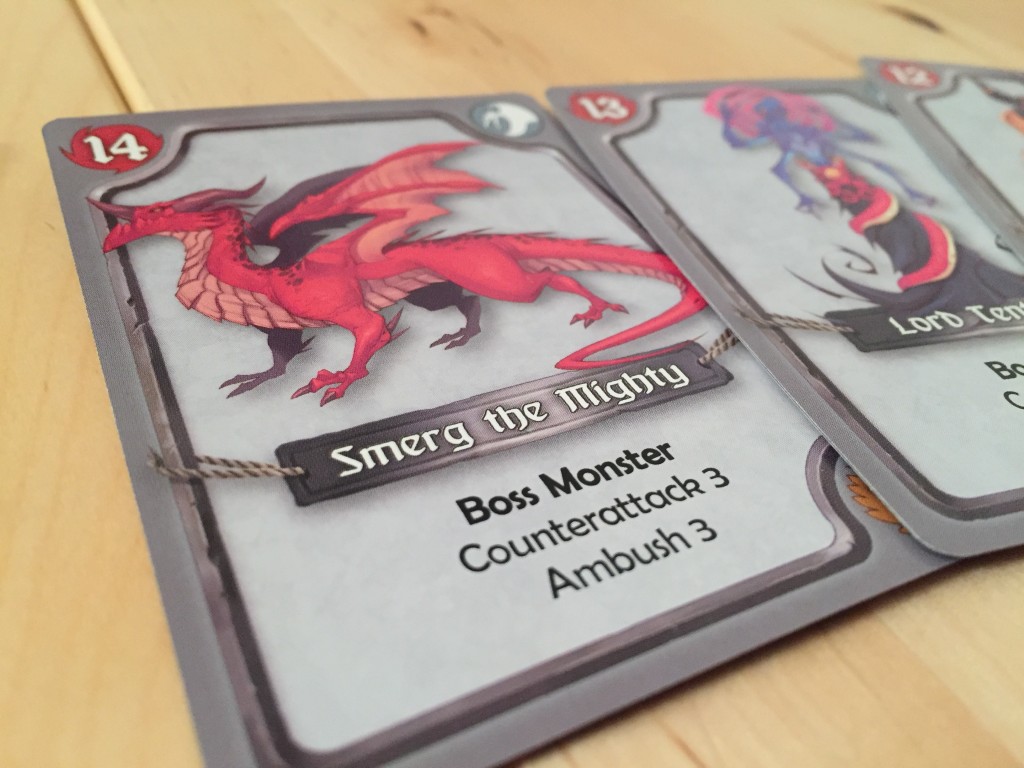
The artwork here is fantastic as well. Slightly cartoony, but with just enough style to pull it off, the card artwork is great. Monsters look fantastic as well – this looks and feels like a well-thought out title with a lot of artwork muscle put into it. The rulebook is a bit of a behemoth too. Well laid out and well written, it is still very long and can be intimidating for the families that will inevitably be playing this.
I can easily see this game hitting Target or Barnes and Noble shelves, and the opportunity for expansion is large as new mechanisms will only further enhance the gameplay.
Issues with Fantahzee
While the game was surprisingly good, offers a lot of variety, and looks great on the table, it’s still basically Yahtzee with some retheming. For those that like to roll big piles of dice, that’s a great thing. In one turn I rolled more dice than come in the box (and there are a LOT in that box). But with the right tableau, you’ll almost never not activate a monster, and at times the game can turn into a churn as you easily kill monster after monster. The inability to impact what your opponents do and the lack of actual challenge in the late game can diminish the experience a little bit as well.
The Bottom Line
Despite a flat difficulty curve and the same trappings that can make Yahtzee feel “samey” over time, Fantahzee was a surprisingly fun and clever little game. I had fun every time I played it – there’s nothing like rolling two piles of dice. Every other table stopped to look and listen at our dice rolls (whether they were entertained or not).

If you’re looking for a fun twist on an easy to teach family classic, this is one you may very well enjoy.
Disclosure: The publisher provided a copy of this game for review.
SUMMARY & RESULTS
Fantahzee is a clever, well produced take on the dice rolling fun of classic Yahtzee. The difficulty curve is weak and the game can feel repetitive towards the end, but the theming and all those dice make it just plain fun.
6.5
Play

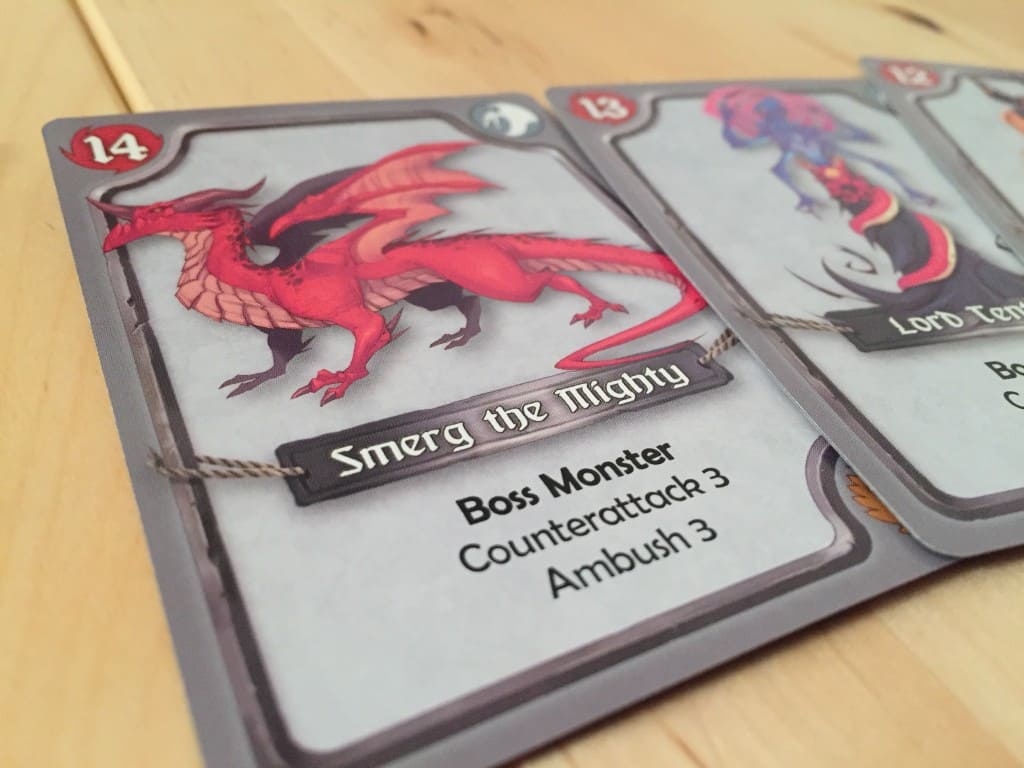



Show Comments